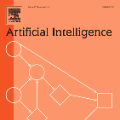Artificial intelligence (AI) systems are increasingly used for providing advice to facilitate human decision making in a wide range of domains, such as healthcare, criminal justice, and finance. Motivated by limitations of the current practice where algorithmic advice is provided to human users as a constant element in the decision-making pipeline, in this paper we raise the question of when should algorithms provide advice? We propose a novel design of AI systems in which the algorithm interacts with the human user in a two-sided manner and aims to provide advice only when it is likely to be beneficial for the user in making their decision. The results of a large-scale experiment show that our advising approach manages to provide advice at times of need and to significantly improve human decision making compared to fixed, non-interactive, advising approaches. This approach has additional advantages in facilitating human learning, preserving complementary strengths of human decision makers, and leading to more positive responsiveness to the advice.
翻译:暂无翻译



